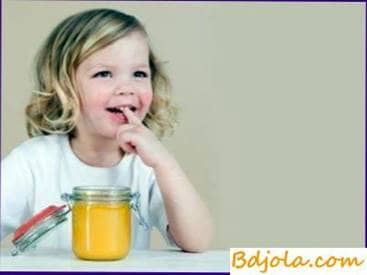
The replacement of sugar with honey in the diet has a beneficial effect on the formation of the child’s body. To consume honey is best in pure form, and also adding to different foods. This significantly improves their taste, increasing caloric value and nutritional value. With a therapeutic purpose, on the contrary, it is better to take honey in a dissolved form, since at the same time its numerous constituents penetrate more easily into the liver, and from the liver into the bloodstream.
Observations were made on 230 children aged 7 to 15 years, who received full-fledged food; In addition, 60 children of this group were given one morning teaspoonful of honey daily.
Anthropometric (measurements of parts of the human body) studies, dynamometry, determination of hemoglobin in the blood, as well as excellent state of health and absence of diseases in this group showed the beneficial effect of honey on children. A spoonful of honey to the diet of children brought more benefits than 20-25 g of sugar, which children received. Honey contains folic acid, which is very important for a growing child’s body.
Honey should be given to children on a teaspoon 2-3 times a day, but not more than 20-30 g per day. There are people with hypersensitivity to honey bees, in which he causes a nettle rash, shortness of breath, vomiting, diarrhea. This feature was feared by old doctors and therefore was not recommended to give children honey.
Nowadays this phenomenon is well studied. At many polyclinics there are special rooms where doctors – allergists determine which food product, medicinal substance, smell of flowers, etc., causes allergy in this patient. Honey, apparently, is an allergen: it contains grains of flower pollen, rich in protein.
Разметка труб. Передвижная платформа.
Bee Honey